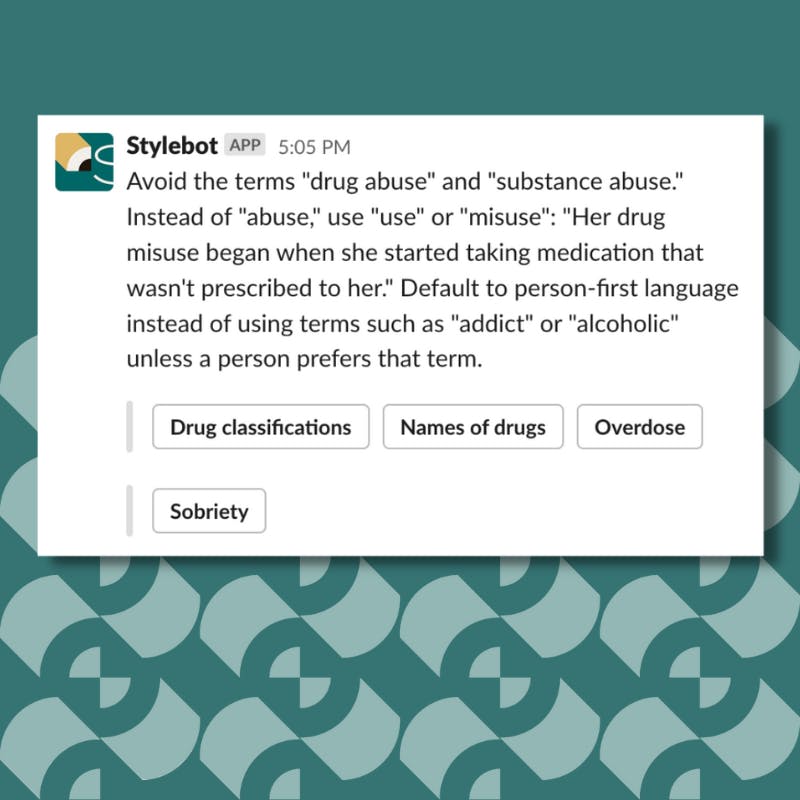Casual but stigmatizing terms about addiction are so common in our writing, speech and culture that you might not think twice before describing someone as “clean” or using the word “addict.” People sometimes use these terms to describe themselves, and, in the case of Alcoholics Anonymous, using a label is part of the recovery process.
But as we often do in our Writing Tips posts, we’re here to give you more context about language and word choice, with a nod to the fact that little changes can add up to make a big difference. Such is the case with the language surrounding addiction, where you can help people feel better understood by choosing the right words.

Using substance misuse instead of “abuse” is a good place to start, and the American Psychological Association recommends avoiding the term “addict” and instead using person with a substance use disorder. This is more than just a good idea in theory: A study from the University of Texas at Austin’s Center for Media Engagement indicates that using person-first language has practical effects, including helping people recovering from substance use disorder feel “better understood.” And when asked to choose which terms they would like journalists to use, these study participants vastly preferred person-first terms to terms such as “addict” and “drug abuser.”
It’s easy to reach for a label, especially one that is commonly used. But when our words can signal empathy, context and understanding, a pause for thought and a few extra words is worth it.
💬 Need more tips?
Want to get writing tips like these on demand? Try Stylebot for free.
📝 About Stylebot
Stylebot helps media professionals save time without sacrificing quality by answering copy editing questions on Slack and Microsoft Teams. We’re on a mission to make editing faster, easier and more fun ✨Lean more about Stylebot or follow us on Twitter and Instagram.
